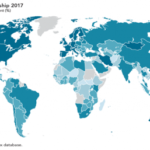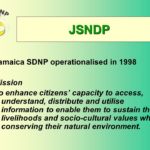Brief prepared to support GFM’s mission to Tunis, 1-5 February.
Background
1. Tunisia was the first country in Africa to gain access to the Internet almost 20 years ago. The connection was done through France and with support from the French Government. As was typical at the time, the Internet was still seen as purely academic and research network.Tunisia Telecom was in charge of the infrastructure while IRSIT (Institut Régional des Sciences Informatiques et des Télécommunications) managed the network content. In 1996, the government created ATI (Tunisia Internet Agency) who since then has been in charge of Internet access, etc.
2. Tunisia has had a long history of monitoring and blocking Internet use and access. In the 1990s for example, we discovered that UNDP email was being monitored by the government service provider after noticing that Internet email was taking 2 days to reach our colleagues in Tunis,.I helped the office set up an independent system using phone calls (store and forward email) which by passed the local Internet providers.
3. For reasons that many people never quite understood Tunisia was chosen by the ITU to host the 2nd part of the World Summit on the Information Society in 2005, follow king the initial meting of 2003 in Geneva. The experience of being in Tunis under tough police control discussing open access to the Internet and the development of the Information Society was, in the end, comical. specially when we all discovered that Internet blocking was never lifted during the Summit.
Key Points
4. Tunisia blocks access to political and social sites and does not allow users to download Internet tools that can help them bypass all Internet filters. It also partially blocks information regarding conflict and security. To block sites, the government uses a commercial software which is provided by a US company. ATI can easily block sites as ALL Internet connections in the country must be routed through their gateways, etc.
5. Although there are no specific laws on broadcasting (such as radio and TV), the government actively prosecutes all those that attempt to set up their own independents media channels AND are critical of government policies. As a result, journalists are frequently jailed, etc.
6. This is not to say that the country is falling behind on IT, Internet and mobile phone infrastructure. On the contrary. The number of Internet users is about 40% whereas mobile penetration is about to reach 100%. ATI has actively pursued connecting all academic institutions and claims that 100% coverage. The outgoing government has been promoting “free” access to all and has setup close to 400 cybercenters, etc.
7. Last summer, Tunisia was awarded the UN e-government award for being the highest ranked e-gov nation in the continent which was characterized as “serving the public interest”. Needless to say, the way in which UNDESA (who compiles such reports) compiles data on this has come under scrutiny.
Action points
8. At this juncture, Tunisia seems to be a good candidate to start pursuing more in depth e-governance programmes as it has both the infrastructure and the human resources to do so. Any such programme should be linked to both pro-poor polices and public institutional reform, etc.
9. Concrete action in this regard can include:
9.1 Revisit the current e-Tunisia and e-government policies and strategies to allow for more bottom-up and citizens engagement
9.2 Focus on basic e-service delivery for citizens (and not only for business and the private sector as has been the case this far).
9.3 Revise current legislation on Internet access and allow for the creation and emergence of new media outlets.
9.4 Change ATI’s mandate and separate content access from infrastructure. This will allow for the creation of new and independent Internet providers that cannot be blocked or shut down by government.
9.5 Allow for the creation of private and non-for profit cybercafes.
Some basic data you should know
– Literacy rate 78%
– HDI rank 98
– EUI Democracy Index 141
Rank
– GDP 39.6 billion
– Population 10 million
– % in Poverty 4% (official data)
– Rural population 34%
– Gini Coefficient 40
– Unemployment Over 20% (college graduate’s unemployment is cloSe to 25%)





